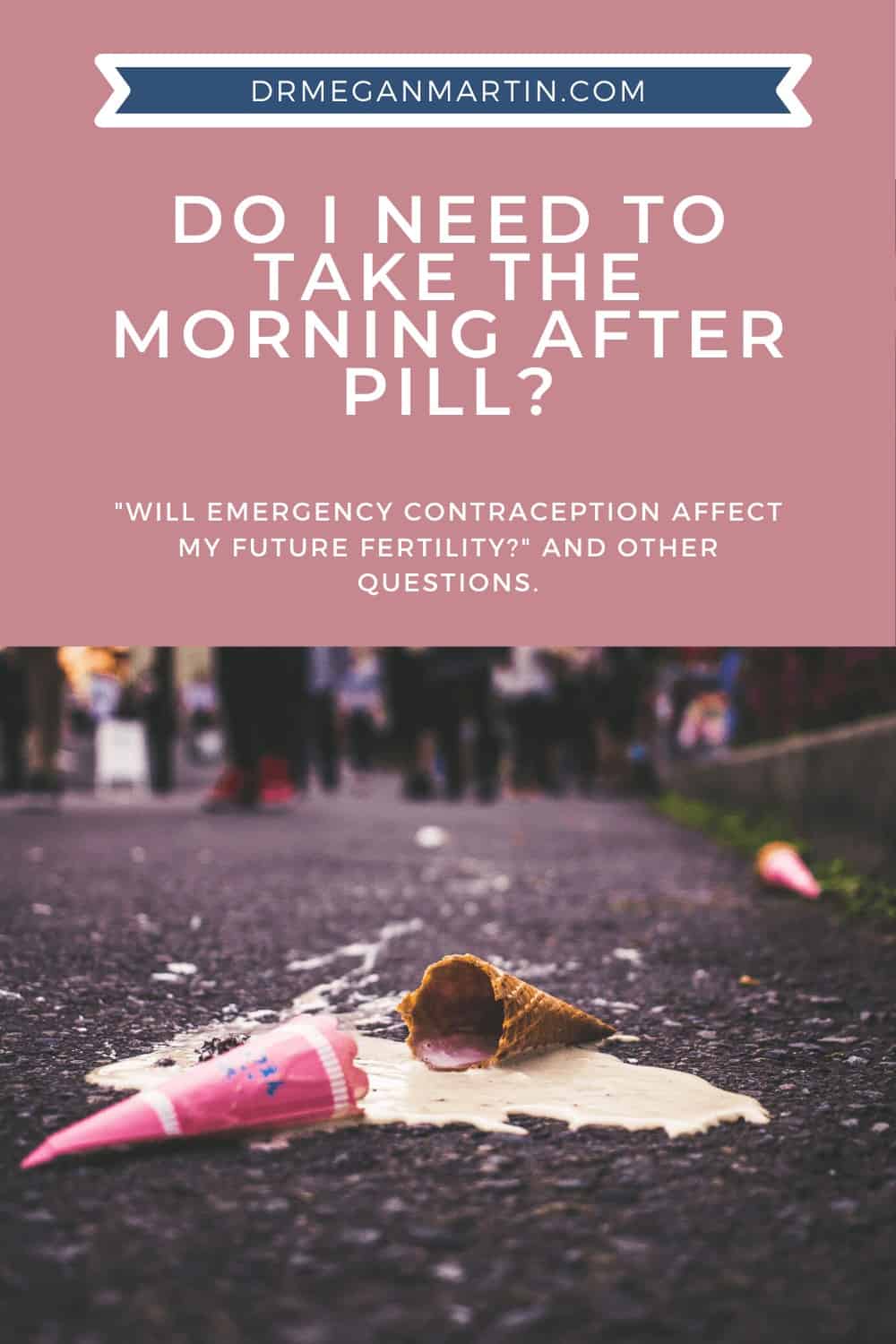Today, many couples are depending on condoms as their primary method of birth control. But what happens when the condom suddenly breaks and panic ensues? This is where emergency contraception (EC) or “the morning after pill” comes into play. It can be used after sex where no birth control method was used or when the sex was non-consensual.
How does emergency contraception work?
Emergency contraception is a method of preventing pregnancy which works by preventing ovulation from occurring.
This means that even if there is sperm present in the woman’s reproductive system, there will be no “egg” to be fertilised. This also means that if the woman is already pregnant, it’s not going to end the pregnancy or harm the baby.
What types of emergency contraception are there?
Studies have shown that the different methods of emergency contraception are between 75-99% effective at preventing pregnancy.
There are two main types of emergency contraception: emergency contraceptive pills and the copper IUD. Both methods can be used up to 5 days after unprotected sex, but ideally within 72 hours.
Make sure you don’t waste time and get your emergency contraception as soon as possible. The sooner you get it, the more effective it will be!
There are a few different pill regimens to choose from.
The first, and the most recommended option due to having fewer side effects, are the progesterone-only pills. These pills contain levonorgestrel, sold under the names: Escapelle, Plan B, or Norlevo. Another option is a pill containing ulipristal acetate, sold under the name Ella or EllaOne.
Another regimen available includes taking a number of pills with both oestrogen and progesterone. This means that, depending on the strength of the hormones in the pills, you could theoretically use your own birth control pills that you have taken in the past without having to go out and get something else.
This does mean that you would need to start a completely new pack of pills afterwards, to start a new menstrual cycle again. This method is known as the Yuzpe Method. This method is less effective, but in certain circumstances, it may be the only viable option for some women. For example: teenagers, those with financial constraints, or those with limited access to healthcare.
This method is more likely to have side effects such as: nausea and vomiting, dizziness, headaches, lower abdominal pain and a heavier menstrual flow.
REMEMBER: If you use this method, or any pill method, and you start vomiting soon after, you will have to take medication to stop the vomiting, then take the emergency contraceptive pills again otherwise they wont be effective.
The other type of emergency contraception is the copper IUD.
This is the most effective method and can be inserted at any time within 5 days of unprotected sex. The downside of this method is that it needs to be inserted by a qualified health professional.
The copper IUD works by preventing fertilisation from taking place. The copper ions in the IUD disrupt sperm function and prevent them from fertilising the egg or ovum. If fertilisation has already taken place, the copper ions can help again by preventing implantation into the lining of the uterus.
If you miss the 5 day mark then it is too late for any method to be effective!
Make sure you don’t waste any time and take your EC as soon as possible, the sooner the better!
Will taking emergency contraceptive pills affect my fertility and reduce the chance of me getting pregnant in the future?
The short answer is: absolutely not!
As discussed above, emergency contraception disrupts your normal menstrual cycle by preventing ovulation from taking place – only for that cycle in particular. So if you used the “Plan B” pill within 72 hours of unprotected sex, the hormones would disrupt your natural cycle, and prevent the ovulation phase of the menstrual cycle from taking place.
You could then immediately start taking a new pack of your normal birth control pills the next day, restarting your cycle again from the beginning. Your menstrual cycle would then proceed as it usually does, just like it did before you took “Plan B”.
Emergency contraception does not cause any harm to your ovaries, your uterus, or your fertility.
You are now free to have children only IF and WHEN you want to!

References
- International consortium for emergency contraception. International Consortium for Emergency Contraception (ICEC). [Online]. Available from: https://www.cecinfo.org/what-is-ec/general-information/ [Accessed 17 April 2019].
- Gemzell-Danielsson, K, Berger, C. Emergency contraception — mechanisms of action. Contraception. 2013;87(3): 300-308.
- World Health Organization Department of Reproductive Health and Research (WHO/RHR) and Johns Hopkins Bloomberg School of Public Health/Center for Communication Programs (CCP), Knowledge for Health Project. Family Planning: A Global Handbook for Providers (2018 update). Baltimore and Geneva: CCP and WHO, 2018.





0 Comments